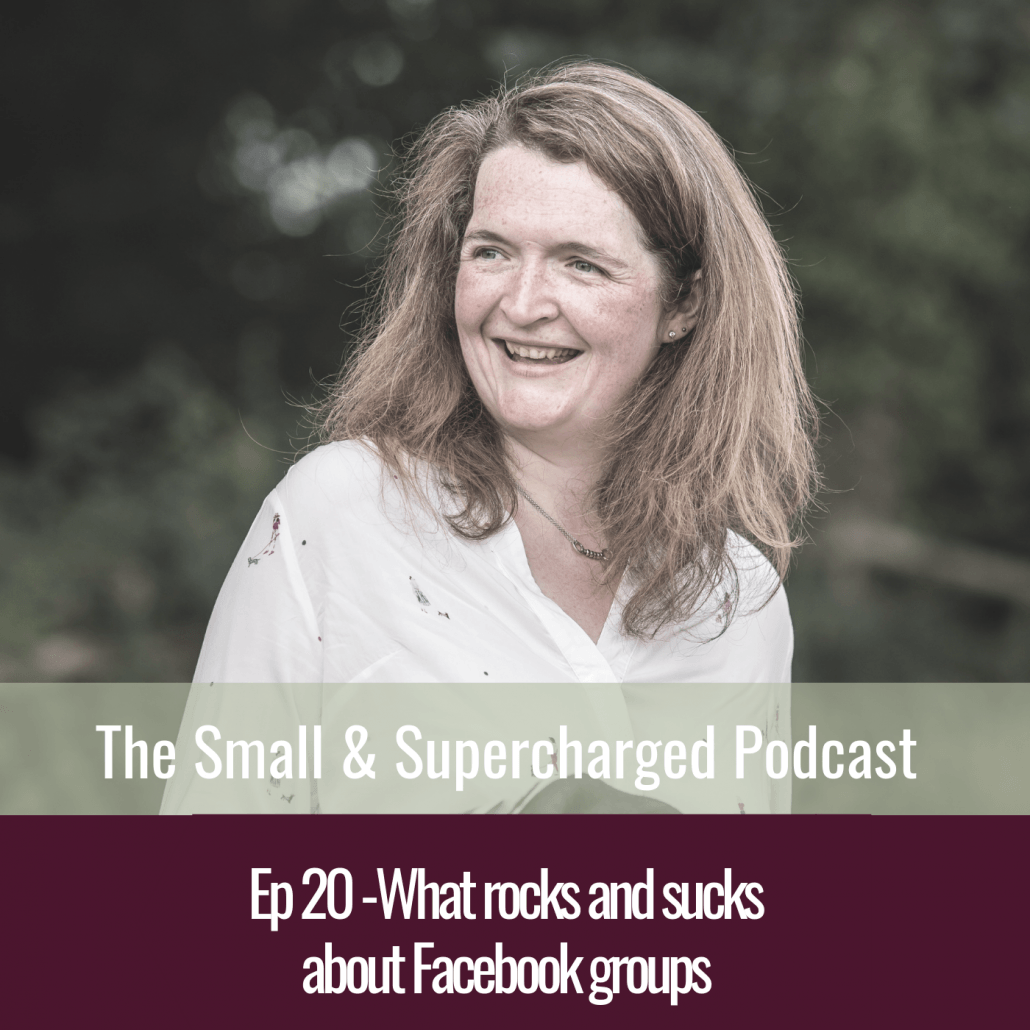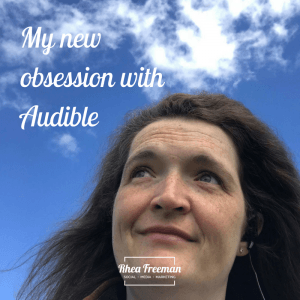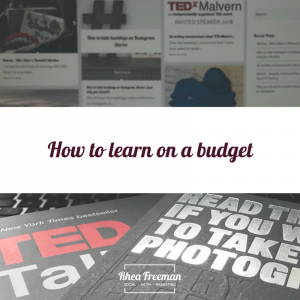
Do you run a Facebook group? Have you thought about it? I run the free Small & Supercharged Facebook group and the Small & Supercharged Mastermind group too. The free group started life a few years ago and, since it launched, I have been on a very steep learning curve when it comes to running Facebook groups. So in this episode of the Small & Supercharged Podcast, I talk about what rocks… and what sucks… enjoy!
What rocks and sucks about running Facebook groups?
Here are the show notes for the Small & Supercharged Podcast episode 20 – what rocks and sucks about running Facebook groups. In this episode you’ll hear…
- Why I started the Small & Supercharged Facebook group and the kind of people you’ll find there (as in, people connected to the equestrian and rural industry).
- The differences between Small & Supercharged and the Small & Supercharged Mastermind group.
- What rocks- you get to know people really well when running Facebook groups. You get to see the people who support others and understand what makes people tick too.
- What sucks – it is hard work. The vast majority of the Small & Supercharged group members are very good, follow the rules and work together. One thing that takes a lot of time is the questions and the requests – particularly when people don’t fill in the questions.
- What rocks – the engagement. In a group you get much better engagement than on a page. This can work whether you’re the admin or if you’re an active member of the group.
- What sucks – people breaking the rules. I have really simple rules for the Small & Supercharged group, but these do still get broken. If you are involved with running Facebook groups, rules are really important as they allows everyone to work in the same way. When rules get broken, it does make you feel like the bad guy when you delete posts. That’s not fun.
- What rocks- groups can be real forces for good. I give a few examples of how Facebook groups can do great things together. Being able to achieve lovely things, as a group, is such a great feeling. Without groups it would a lot more fragmented.
- What sucks – copycats. I know I’m not the first person to ever have a Facebook group, but copycats in the same area are a bit of a kick (often using very similar wording and sometimes even promoting their groups in yours).
- What rocks- the support of a community. This can be so, so lovely when people are having a challenging time or having issues. A good group means that you have somewhere to go and share and get support as needed. It can help to break a cycle of frustration and sadness and allow people to kick on.
- What sucks – not answering the questions. Even if you set questions for your Facebook group, be aware that a LOT of people won’t answer them. I have just under 200 requests at the moment from people who haven’t answered the three simple questions that allow me to make sure they’re a good fit for the group.
- What rocks – collaborations. I know that because of the Small & Supercharged Facebook group, a lot of collaborations have happened. Without the Facebook group they may not have found each other. And being able to facilitate this is so, so lovely.
- What sucks- things can escalate really quickly. It can be a little stressful if something gets out of hand and it can get out of hand very quickly.
- What rocks – people have got to know me. I really like the fact that people have got to know me better. It means that when I meet people at events and shows, we don’t have to go through the awkward first stages of a connection and friendship. It makes networking so much easier and it feels like I’m meeting up with friends at these gatherings, rather than strangers. I might not have met them in person all that much, if at all, but I know them.
- what sucks – people not using the group properly. This is more disappointing I guess. It’s all about give and take, and some people tend to take a lot and give very little. This isn’t so much against the rules but it doesn’t feel great.
- What rocks – it allows real life activities to happen. Things like the Small & Supercharged meet ups at Badminton. It’s nice to see people in real life, of course it is, but without the group I wouldn’t necessarily know these people. With the Hiho & Co event, a lot of people from S&S are coming, and I think letting people make these connections before an event is a real biggy.
So, that’s my what rocks and sucks about running Facebook groups podcast. I hope it shed a bit of light on the subject of groups for you, whether you want to run one or just want to get the most out of the ones you’re in!
If you’d like to join the Small & Supercharged Facebook group, you’d be very welcome – just join the Facebook group here.
Are you Small & Supercharged (find out more about the Facebook group)


